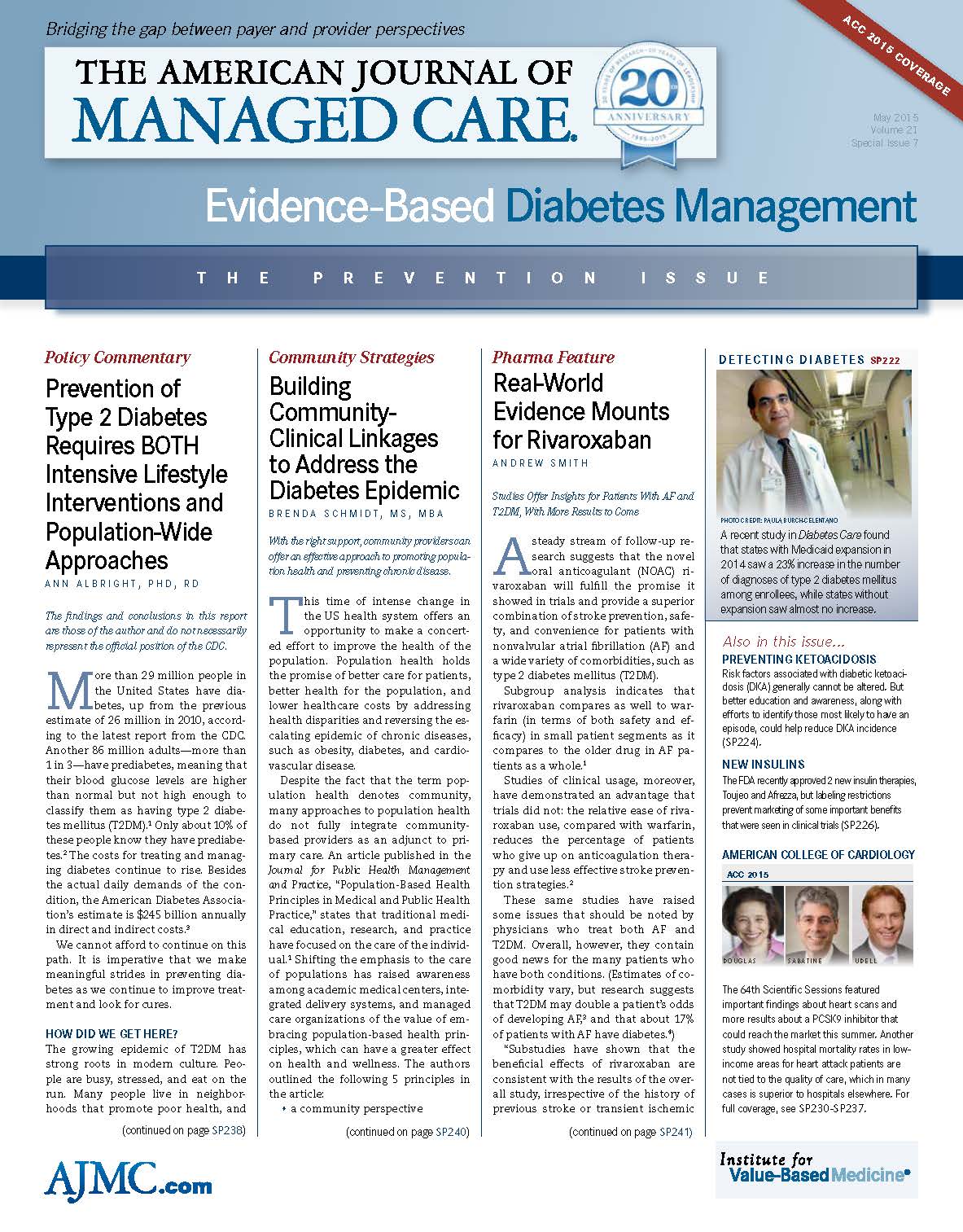- Center on Health Equity & Access
- Clinical
- Health Care Cost
- Health Care Delivery
- Insurance
- Policy
- Technology
- Value-Based Care
USPSTF Evidence Review Could Lead to Revised Screening
An evidence review supports a proposed USPSTF recommendation to update how the healthcare system screens for prediabetes.
A look at the most recent evidence on how to identify those at risk for diabetes could lead the US Preventive Services Task Force (USPSTF) to alter the way the healthcare system screens for prediabetes.1 In October 2014, a draft guideline shifted the focus from persons with elevated blood pressure (BP) to those with impaired fasting glucose (IFG) or impaired glucose tolerance (IGT).2
A USPSTF literature review, published April 14, 2015, in the
,
found that millions of Americans could avoid the progression to diabetes if screening for abnormal glucose became the routine for adults 45 years and older (screening would be recommended for younger adults with risk factors).
Annals of Internal Medicine3
The review did not find a 10-year mortality benefit from screening. However, screening for IFG or IGT did help delay disease progression, which could have important implications for managed care. The total cost associated with diabetes in the United States, estimated at $245 billion in 2012,
includes the cost of treating the disease and its complications, such as kidney failure and blindness, as well as costs arising from lost productivity, including disability costs incurred by patients unable to work.
4
Early identification of persons with prediabetes, along with education and intervention, has received priority treat-ment from both the medical and public health communities, through the launch of Prevent Diabetes STAT by the American Medical Association and CDC.5
The literature review synthesized 16 trials that consistently found the treat-ment of IFG or IGT to be associated with a delayed progression to diabetes. Most trials of treatment for either condition found no effects on all-cause or cardiovascular mortality.
In 2008, the USPSTF issued a B recommendation for diabetes screening in asymptomatic adults with sustained BP greater than 135/80 mm Hg. The recommendation was based on the ability of screening to identify those with diabetes, as well as evidence that treating BP was associated with reduced risk for cardiovascular events. At that time, the USPSTF did not find sufficient evidence to include screening for adults without elevated BP.1
References
1. Selph S, Dana T, Blazina I, Bougatsos C, Patel H, Chou R. Screening for type 2 diabetes mel-litus: a systematic review for the US Preventive Services Task Force [published online April 14, 2015]. Ann Intern Med. doi:10.7326/M14-2221.
2. Draft recommendation statement. Abnormal glucose and T2DM in adults: screening. US Preventive Service Task Force website. http:// www.uspreventiveservicestaskforce.org/Page/ Document/draft-recommendation-statement43/ screening-for-abnormal-glucose-and-type-2-diabe-tes-mellitus. Published October 2014. Accessed April 14, 2015.
3. Tucker ME. USPSTF evidence review supports prediabetes screening. Medscape website. http://www.medscape.com/view-article/843020. Published and accessed April 14, 2015.
4. American Diabetes Association. Economic costs of diabetes in the United States. Diabetes Care. 2013;36:1033-1046.
5. Caffrey MK. AMA, CDC launch Prevent Diabe-tes STAT to prevent more cases of type 2. Am J Manag Care. 2015;21(SP5):SP152.


